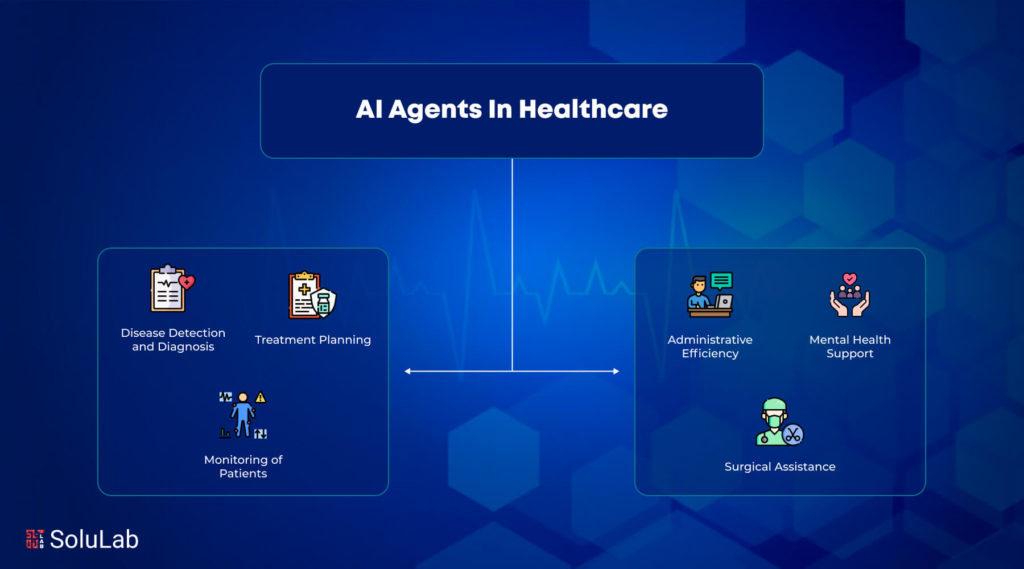How Healthcare Companies Are Shaping the Future of Medicare for Aging Populations
Wiki Article
Just How Insurance Functions for Senior Citizens: Trick Insights Into Medicare and Protection Options
Understanding insurance policy for seniors, especially Medicare, is crucial for reliable medical care administration. Medicare gives essential protection, however its complexities can be overwhelming. Seniors need to navigate different parts, such as Parts A, B, and D, together with options like Medicare Advantage and Medigap plans. Each choice effects their economic obligations and accessibility to solutions. Unpacking these elements reveals substantial insights that can influence their medical care choices. What are the vital aspects elders should take into consideration?Recognizing Medicare: A Summary

Medicare Components A and B: What They Cover
Medicare Components A and B give vital protection for senior citizens, attending to both health center and clinical services. Component A focuses on hospital insurance, covering inpatient keeps and particular outpatient services. Component B supplies insurance coverage for an array of clinical services, including physician check outs and precautionary treatment.Medical Facility Insurance Coverage Coverage
Just how do seniors browse the complexities of health center insurance policy coverage? Medicare Part A supplies necessary health center insurance policy, covering inpatient keeps, experienced nursing facility care, hospice solutions, and some home healthcare. This coverage is critical for senior citizens, as it helps take care of the costs connected with hospitalizations and recovery.Medicare Part B, on the various other hand, enhances Component A by covering outpatient solutions, including physician check outs, precautionary care, and diagnostic tests. With each other, these 2 parts develop a thorough safety and security internet for senior citizens, ensuring they have accessibility to needed healthcare. Understanding the distinctions between Components A and B permits senior citizens to make informed choices about their medical care needs and financial obligations related to healthcare facility solutions.Medical Services Coverage
While traversing the intricacies of clinical services coverage, seniors benefit from understanding the particular offerings of Medicare Components A and B. Medicare Part A largely covers inpatient medical facility stays, knowledgeable nursing facility treatment, hospice treatment, and some home healthcare solutions. On the other hand, Medicare Part B concentrates on outpatient services, consisting of doctor brows through, preventative treatment, analysis tests, and sturdy clinical tools. Furthermore, Part B covers specific psychological health and wellness solutions and outpatient rehab. Together, these components provide a comprehensive structure for managing health care demands. Seniors need to familiarize themselves with the subtleties of these insurance coverage choices to ensure they maximize their advantages and minimize out-of-pocket expenditures, eventually boosting their access to necessary clinical services.Medicare Advantage Strategies: An Alternate Method
A growing variety of elders are checking out Medicare Benefit Plans as a feasible option to conventional Medicare. These plans, likewise referred to as Medicare Part C, are used by personal insurance provider and include all advantages of Medicare Parts A and B, commonly including added solutions such as vision, dental, and wellness programs. Several seniors appreciate the structured strategy, as these plans typically supply a single policy that covers various healthcare needs.Medicare Advantage Strategies can provide a cost-efficient option, with some plans also featuring low or no month-to-month costs. However, it is essential for elders to examine the network of medical professionals and healthcare facilities connected with each strategy, along with any kind of additional out-of-pocket expenses that might occur. Eventually, selecting a Medicare Advantage Plan needs careful factor to consider of private health and wellness needs and financial conditions, ensuring senior citizens pick the choice that best suits their way of living and health care demands.Prescription Medication Protection: Medicare Part D
Medicare Component D uses important prescription medicine coverage for elders, aiding to take care of the expenses of needed medicines. Understanding the enrollment duration is essential for recipients to optimize their advantages and prevent charges. Furthermore, cost factors to consider play a substantial function in selecting the ideal strategy to suit specific health requirements and financial scenarios.Protection Essential Explained
Prescription medicine coverage is a necessary element of healthcare for senior citizens, making certain access to needed medicines. Medicare Part D supplies a range of plans made to assist cover prescription drug prices. These plans are offered by personal insurance provider accepted by Medicare and can vary extensively with respect to premiums, deductibles, and covered drugs. Recipients you can try these out normally pay a monthly premium, along with copayments or coinsurance for every prescription. It's essential for elders to review their choices every year, as costs and formularies may alter. Some individuals might also get approved for Extra Assistance, a program that helps with out-of-pocket costs. Inevitably, understanding these essentials permits elders to make educated choices regarding their prescription medicine protection.Registration Duration Details
Understanding the different enrollment periods for Medicare Part D is vital for elders looking for to safeguard their prescription medicine coverage. The Initial Enrollment Duration (IEP) lasts 7 months, starting three months prior to a private turns 65 and finishing three months after. During this time, senior citizens can register in a Component D strategy scot-free. The Annual Enrollment Period (AEP) runs from October 15 to December 7 every year, permitting recipients to make modifications to their existing strategies or enlist in a new one. Additionally, senior citizens might receive a Special Registration Duration (SEP) as a result of certain situations, such as moving or losing other protection. Understanding of these timeframes is important for making sure appropriate prescription drug coverage.Price Considerations Introduction
While navigating through the complexities of medical care prices, senior citizens must consider the financial elements of Medicare Component D, which gives necessary prescription drug protection. This program involves numerous expenses, including regular monthly costs, annual deductibles, and copayments for medicines. Premiums can differ significantly based on the selected plan and income level. Furthermore, recipients may encounter an insurance coverage space, often referred to as the "donut opening," where out-of-pocket expenses boost until getting to a specific spending limit. Comprehending these cost frameworks is essential for senior citizens to properly handle their health care spending plans. It is a good idea for elders to evaluate their prescription needs annually, as medications and plan alternatives might alter, affecting overall expenditures and coverage adequacy.Medigap Policies: Supplementing Your Medicare Insurance Coverage

Medicaid: Extra Support for Low-Income Seniors
For seniors encountering monetary difficulties, Medicaid functions as a crucial safeguard, offering essential healthcare insurance coverage and support. This program, carried out collectively by federal and state federal governments, especially targets low-income individuals, consisting of the elderly. Medicaid covers a broad series of solutions, such as health center stays, medical professional sees, long-term care, and home wellness solutions, which are essential for maintaining health and health. Qualification for Medicaid varies by state, often based upon income, properties, and certain medical needs. Many senior citizens might qualify for both Medicare and Medicaid, understood as dual eligibility, which can aid cover expenses that Medicare does not, such as copayments and deductibles. Furthermore, Medicaid might give aid with prescription drug expenses through programs created for low-income recipients. In general, Medicaid plays a considerable function in ensuring that low-income senior citizens have accessibility to necessary healthcare solutions, advertising much better wellness results and top quality of life.Browsing the Enrollment Process: Trick Timelines and Tips
Just how can elders properly browse the facility enrollment procedure for medical care insurance coverage? Comprehending essential timelines is vital. The first registration period for Medicare starts three months prior to the individual turns 65, expands with the month of their birthday, and continues for 3 months after. During this period, seniors can sign up in Medicare Part A and Component B without penalties.Additionally, the annual open enrollment duration for Medicare Advantage and Part D ranges from October 15 to December 7 yearly, permitting changes in insurance coverage. Senior citizens are advised to examine their current wellness needs and review plan alternatives throughout this time.To assist in a smooth enrollment experience, making use of resources such as the Medicare site or getting in touch with state medical insurance aid programs can give important guidance. Tracking deadlines and essential papers will certainly even more assure that elders protect one of the most suitable insurance coverage for their healthcare requires.
Frequently Asked Inquiries

Can I Maintain My Existing Physician With Medicare Coverage?
The concern of maintaining a present doctor under Medicare insurance coverage usually relies on the specific strategy chosen. Numerous Medicare Benefit plans may need using a network of carriers, while Original Medicare usually allows wider access to medical professionals.What Occurs if I Miss the Enrollment Duration?
If an individual misses out on the registration period, they may deal with postponed insurance coverage, higher costs, or potential fines. Healthcare Companies. This situation can cause spaces in health care gain access to, prompting check these guys out the need for careful planning and recognition of target datesAre Oral and Vision Solutions Covered by Medicare?
Oral and vision services are typically not covered by Medicare. Some Medicare Benefit plans may use these benefits. Seniors need to explore their options to figure out if added insurance coverage is offered for these important solutions.Exactly how Do I Submit an Issue Concerning My Medicare Plan?
To file a complaint concerning a Medicare plan, one ought to call Medicare straight at 1-800-MEDICARE or visit their internet site. Coverage issues helps improve services and assurances that issues are addressed quickly.Can I Adjustment My Medicare Plan After Registration?
Transforming a Medicare strategy after registration is possible throughout assigned periods, such as the Yearly Enrollment Duration or Special Registration Periods (Senior Insurance Agent). Individuals must evaluate their options very carefully to ensure they choose the most effective coverage for their requirementsConclusion
In summary, recognizing the details of Medicare and its different components is crucial for elders seeking to maximize their medical care insurance coverage. By discovering Medicare Components A and B, Benefit Plans, Component D for prescriptions, and Medigap policies, elders can make enlightened decisions that reduce out-of-pocket costs. Additionally, recognition of Medicaid options offers more support for low-income people. Guiding the enrollment process with vital timelines guarantees that elders can access the necessary solutions they need for their wellness. The program is divided right into Initial Medicare and Medicare Benefit, each offering unique benefits and protection alternatives. While passing through the complexities of clinical solutions coverage, senior citizens benefit from recognizing the details offerings of Medicare Parts A and B. Medicare Component A primarily covers inpatient hospital keeps, experienced nursing facility care, hospice treatment, and some home wellness care services. An expanding number of seniors are exploring Medicare Benefit Plans as a feasible choice to traditional Medicare. Numerous seniors might certify for both Medicare and Medicaid, understood as twin eligibility, which can help cover costs that Medicare does not, such as copayments and deductibles. Throughout this period, senior citizens can enroll in Medicare Component A and Component B without penalties.Additionally, the annual open enrollment period for Medicare Benefit and Component D runs from October 15 to December 7 each year, permitting modifications in coverage.Report this wiki page